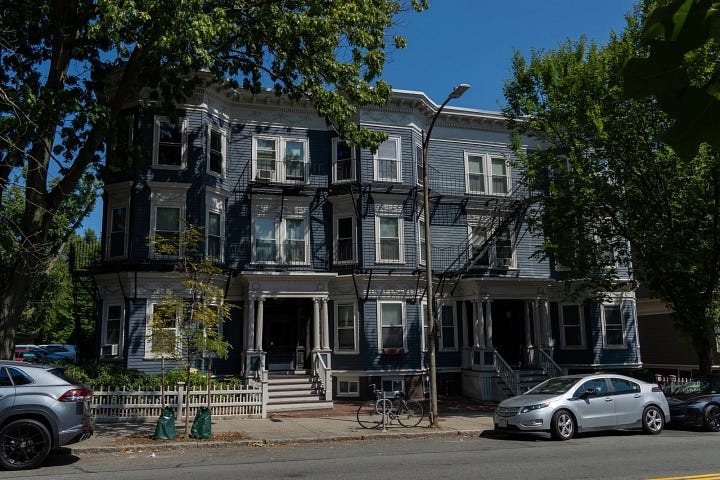Dos and Don'ts - March Edition
Good and bad moves on zoning, ADUs, public space, taxes and more
Hey readers, I’m back again with a new edition of Dos and Don’ts – a fun way to package some of the best and worst headlines about housing, public space, transit, and more. Do consider subscribing to read past every paywall, get job listings from my network, and receive subscriber event details first!


Do: Cambridge, Mass. ends single-family zoning
Let’s hear it for another city ending single-family zoning’s priority status! In this case Cambridge, Mass. will allow four-story residential buildings to be built as of right. Six-story buildings can also be built, if 20 percent of the building’s units are reserved for affordable housing. Prior to changing the zoning, Cambridge anticipated just 300 new housing units over the next 15 years; now that number is 3,500 units – more than 10 times as much housing as would otherwise have been developed.
Don’t: Lexington, Mass. pulls back on density
Not far from Cambridge, the historic and wealthy Boston suburb of Lexington Mass., is nixing its density plans after a building boom. According to Bank & Tradesman:
Town Meeting members voted nearly unanimously…to cut the town’s zoning capacity under the law from nearly 13,500 units to just 2,411, including 1,097 in projects already proposed in the last year. The size of the district, in pure acreage terms, was cut roughly in half.
Once heralded as the poster child for the MBTA Communities law’s potential, the move puts Lexington back in the ranks of other wealthy Boston suburbs that have rejected ambitious efforts to add new homes within their borders.
Many small business owners were in favor of the new developments, because they hoped more housing would bring more customers.


Do: California Reconsiders Gas Tax
Given that more and more cars on the road are electric and hybrid, state funding formulas that rely on gas taxes to maintain infrastructure are facing trouble. California is exploring the concept of a California Road Charge to replace the gas tax with a mileage-based user fee. As the proposal’s website states: “Everyone would pay their fair share for road repairs based on how much they drive, not the kind of car they own.” According to an ABC report, the decline in gas tax revenue is pretty dramatic across the country: “The downward revenue trend is already playing out in Pennsylvania, where gas tax revenues dropped an estimated $250 million last year compared with 2019, according to the state's independent fiscal office.”
Don’t: Mississippi to Eliminate Income Tax and Raise Gas Tax
Oh Mississippi! The state House just approved eliminating their already low income tax and raising the gas tax; the legislation just needs the governor’s signature. Given the decline in gas tax funding (not only because of electric vehicles, but also because gas taxes can never keep up with inflation) this seems like an awfully risky way to fund the state. Maybe Mississippi figures it can eliminate the income tax, since it ranks dead last in 50 states for median income.




